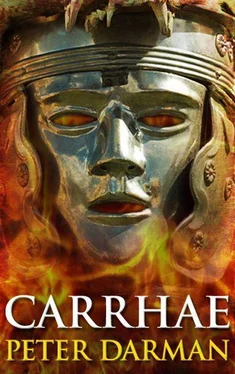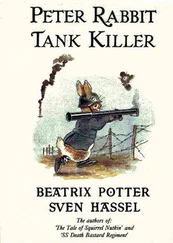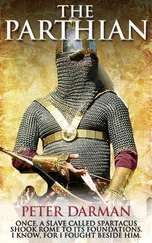Peter Darman - Carrhae
Здесь есть возможность читать онлайн «Peter Darman - Carrhae» весь текст электронной книги совершенно бесплатно (целиком полную версию без сокращений). В некоторых случаях можно слушать аудио, скачать через торрент в формате fb2 и присутствует краткое содержание. Год выпуска: 2013, Жанр: Исторические приключения, на английском языке. Описание произведения, (предисловие) а так же отзывы посетителей доступны на портале библиотеки ЛибКат.
- Название:Carrhae
- Автор:
- Жанр:
- Год:2013
- ISBN:нет данных
- Рейтинг книги:3 / 5. Голосов: 1
-
Избранное:Добавить в избранное
- Отзывы:
-
Ваша оценка:
- 60
- 1
- 2
- 3
- 4
- 5
Carrhae: краткое содержание, описание и аннотация
Предлагаем к чтению аннотацию, описание, краткое содержание или предисловие (зависит от того, что написал сам автор книги «Carrhae»). Если вы не нашли необходимую информацию о книге — напишите в комментариях, мы постараемся отыскать её.
Carrhae — читать онлайн бесплатно полную книгу (весь текст) целиком
Ниже представлен текст книги, разбитый по страницам. Система сохранения места последней прочитанной страницы, позволяет с удобством читать онлайн бесплатно книгу «Carrhae», без необходимости каждый раз заново искать на чём Вы остановились. Поставьте закладку, и сможете в любой момент перейти на страницу, на которой закончили чтение.
Интервал:
Закладка:
I thought the whole affair folly as it showed the Romans that Parthian horsemen were not invincible but Orodes was delighted, believing that the Romans would not provoke Parthia again. I had my doubts but for a while both the eastern and western frontiers of the empire were secure and at peace.
Orodes should have enjoyed a long and prosperous reign but the gods had decided otherwise for the birth of his son had been accompanied by tragedy. Three days after she had given birth to the boy they named Phraates in honour of Orodes’ father, Axsen had died.
Orodes had visibly aged before our eyes as grief gripped him with a cruel intensity. He gradually handed over much of his power to courtiers who had too much authority and like all small-minded and mediocre men coveted influence and wealth. Whether Orodes resented the son whose birth had robbed him of his wife I did not know, but the boy grew up in a Ctesiphon once again poisoned by intrigue and ambition and came to despise his father. Pale and thin, Phraates hid his emotions and presented a mask of aloofness and coldness to the world.
As time passed Orodes shut himself off from the world, shunning his old friends as sorrow consumed him while his son’s resentment against his father grew. When he reached his sixteenth birthday Phraates had him murdered before declaring himself king of kings. Shock reverberated throughout Parthia to be quickly replaced by outrage that a good and just ruler had been murdered, but the advisers of Phraates were clever and knew that there was no enthusiasm for a civil war to topple the young high king. Letters were sent from Ctesiphon to the various capitals in the empire demanding allegiance to Phraates and it seemed as though Mithridates had returned to the world. Perhaps he had, the gods having sent back his rotten soul in the body of his nephew.
I ignored his demands for allegiance and requests for troops when, a year later, that young man whose company I had found so entertaining years ago in Syria invaded Parthia with an army of one hundred thousand men. Mark Antony decided not to march through Hatran territory but instead crossed the Euphrates at Zeugma and advanced north into Armenia where he found a warm reception from the treacherous Artavasdes, who offered support to his campaign. And so Mark Antony marched his army into northern Parthia together with thirteen thousand Armenian troops. But he lost his supplies, Artavasdes deserted him and Spartacus, now a king, destroyed his rearguard of ten thousand men. Antony was forced to retreat back to Zeugma, all the while being harried by swarms of Parthian horsemen. He lost a further thirty thousand men during this withdrawal before limping back into Syria where an Egyptian queen named Cleopatra joined him with money and clothes for his exhausted army. I heard that they were lovers and desired to rule the world, but ended up taking their own lives during a great Roman civil war in which a young man by the name of Augustus emerged victorious.
An end to all things
They are gone, all of them. Every Companion who had accompanied me from Italy was now dead, the only record of their existence being the names carved on the stone memorial in the Citadel. I am old now, a relic of a bygone age, a frail old man whose time has passed.
The Romans did not return to Parthia though they made many threats to do so. Phraates continued to rule the empire as high king but unlike Mithridates learned not to unnecessarily provoke the other kings of the empire. I never forgave him for the murder of his father, my friend. But he was always polite and deferential to me and I had neither the energy nor inclination to instigate a revolt against his rule, which in truth was no more tyrannical than other high kings. Phraates may have been ruthlessly cunning but he was also clever. He insisted on regular meetings of the Council of Kings at Esfahan, which I found personally tedious but were a useful venue where the rulers of the empire could vent their frustrations and get the ear of the high king. Phraates did what he wanted and ignored anything he disagreed with but gave the illusion that he was a benevolent high king who listened to his fellow rulers. After a while I stopped going to these bi-annual gatherings, giving as an excuse the pain in my leg.
It was not wholly untrue because as the years passed my leg became more and more troublesome and I was forced to rest it for days at a time. I had scars on my left arm, on my back and on my face but the arrow that had pierced my leg outside the walls of Dura had the most debilitating effect. It was during one such recuperative period, when I was sitting on the palace terrace with my feet up, that Strabo searched me out, a distraught look on his face that told me something was wrong.
‘Remus is down.’
I hobbled to the stables to find my old stallion lying in his stall, his head lifting as he heard my voice.
‘He can’t get up,’ said Strabo with a tremulous voice.
‘What is the matter with him?’ I whispered, already knowing the answer.
‘Old age, majesty, nothing more, nothing less. Years of campaigning takes its toll on even the strongest stallion.’
I entered the stall and eased myself down to sit by him, gently stroking his neck. After the great raid into Syria I had no longer ridden Remus on long journeys and he had thrived in his semi-retirement. Tegha became my main warhorse. I still rode Remus, of course, taking him out every morning for a ride when I was at Dura, but as the time passed he developed stiffness in his joints. His stride became shorter, his movements slower and his flexibility much reduced. And now he had suddenly deteriorated rapidly.
As I talked to him and continued to stroke him he stopped trying to rise and seemed content to be in my company, snorting quietly and rolling his eye to look at me.
Gallia and my children came soon after, stroking his neck and kissing him on the head before leaving him for what they knew was the last time. I stayed with him all that day and night, talking to him about the great victories he had taken part in and the thousands of miles we had travelled together. His breathing was calm and untroubled as the first rays of the dawn sun crept into his stall the next morning and he looked up at me one last time and then those big blue eyes closed and he exhaled. I held his head in my arms as his mighty heart stopped and tears ran down my face onto his white coat. The stall was illuminated by a bright yellow glow as Shamash embraced the soul of a mighty warhorse and carried it to heaven where he would wait until my time on earth was over.
I had seen death many times on the battlefield, witnessed the terrible injuries that arrows, lances and blades can inflict on flesh and bone, seen bellies ripped open and tasted the nauseating stench of blood and gore in my mouth, but the death of Remus affected me greatly. He had been my loyal companion for over thirty years and now he had been taken from me. It was a great loss but I realise now that life is about loss: the loss of parents, the loss of friends and, most of all, the loss of one’s youth.
As the years passed I withdrew more and more from the affairs of the empire. Isabella came of age and married the son of King Peroz of Sakastan, who was a frequent visitor to Dura and brought his boy, a fine young man who had inherited the good looks of his mother. And so my second daughter left us and made her home at the other end of the empire. Shorty afterwards we also lost Eszter but her passing was a time of great sadness and privation and was accompanied by the death of Dura’s queen.
A great pestilence came from China and swept through the empire like an army of demons from the underworld, striking down rich and poor alike. The epidemic decimated towns and cities and Dura was no exception. We heard of its approach and tried to take measures to prevent it reaching us, dismantling the pontoon bridges near the city and placing guards on the stone bridge further north to prevent trade caravans transiting through the kingdom. In this way we hoped to prevent anyone carrying the illness from entering Dura, but then word reached us that people in Palmyra were dying of the contagion and that it had entered Syria and Judea. And then, one morning as I sat in the throne room listening to Alcaeus reporting on how the bodies of those who had died of the disease were being disposed of, Gallia fell ill. Within hours she was confined to her bed as she was afflicted by a burning sensation in her head.
Читать дальшеИнтервал:
Закладка:
Похожие книги на «Carrhae»
Представляем Вашему вниманию похожие книги на «Carrhae» списком для выбора. Мы отобрали схожую по названию и смыслу литературу в надежде предоставить читателям больше вариантов отыскать новые, интересные, ещё непрочитанные произведения.
Обсуждение, отзывы о книге «Carrhae» и просто собственные мнения читателей. Оставьте ваши комментарии, напишите, что Вы думаете о произведении, его смысле или главных героях. Укажите что конкретно понравилось, а что нет, и почему Вы так считаете.












